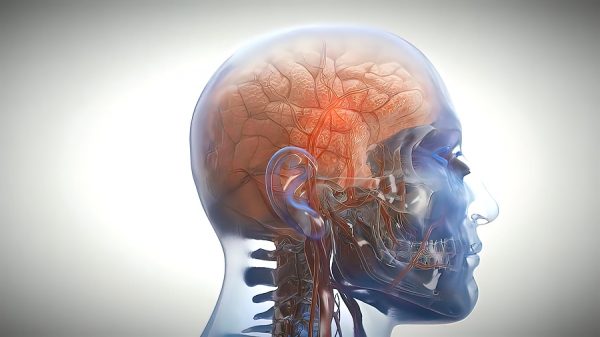The brain is an amazing thing. For our entire lives, it constantly sends electrical signals and messages that form trillions of neural pathways in the brain.
But imagine that those pathways are just like the streets and highways that connect cities and states. Streets along older routes become damaged and may or may not be repaired. Some roadways may wash away or shut down completely.
When you apply this concept to your brain, you can see why memory may begin to fail as we age.
If the electrical signals in your brain can’t find the right paths to follow, you might misplace your phone, glasses or keys more often than normal. It could be hard to remember which day it is or what you were supposed to pick up at the store. Maybe it’s hard to remember names, places or other things that should be on the tip of your tongue.
But I have some exciting news!
Your brain has the natural ability to regenerate cells and neurons. It can actually repair damaged routes, create new ones and learn how to navigate them! This is called neuroplasticity, or brain plasticity.
One of the key proteins involved in plasticity is something called brain derived neurotrophic factor (BDNF). It’s like Miracle Gro for the brain. But it’s not a supplement. You can’t buy it at the store. Rather, it’s a protein that your own body makes.
When you’ve got plenty of BDNF, it encourages the growth of new neurons, improves their function and enhances synaptic activity. So learning new things and retrieving memories is easy.
When levels are low, it’s hard to learn anything new and memories can get foggy. Worse it could lead to dementia.
So how can you tell your body to make more of this brain booster?
Get more physical activity! It’s the absolute best way to boost the production of BDNF. And the earlier in the day you start your activities, the better off you will be. That’s because, when you exercise in the morning, levels of BDNF are elevated for the next eight hours or so. And during this elevation, both short-term working memory and executive function go into overdrive.
You can add even more power to you brain cells by taking a few short exercise breaks throughout the day.
Better yet, try some activities you’ve never tried before. Golf lessons, dance classes, tai chi… the more you put your mind to work learning new activities, the more additional mental stimulation you will receive.
More Ways to Keep Your Brain Sharp
Physical activity to release BDNF isn’t the only thing your brain needs to stay sharp. It also needs…
- At least 7 hours of sleep every night to help clear out daily built up toxic waste. You see, sleep opens your brain’s ventricular highway so that cerebral spinal fluid (via the Glymphatic system) flushes out all the damaging oxidative stress debris your brain accumulates during the day. Sleep provides a clean wipe so your brain is ready and active when you wake up in the morning…sort of like a system rebooting.
- Plenty of mental stimulation. It’s no secret that the brain needs stimulating mental activity. And one of the best ways to challenge your mind is to find something you know very little about, but are extremely interested in or passionate about. It can be just about anything, from learning to play a musical instrument to discovering how to plant and grow an organic herb garden. Maybe you’ve always wanted to know another language… or how to take dramatic camera or video shots.
While you learn, your brain will start experiencing neural changes, improved brain structure and increased electrical activity – all of which go to work to improve the communication network in your brain.
- A lifetime of social Interaction. Being socially isolated is associated with a much greater risk of developing dementia. So make the effort to stay as socially active as you can. Spend time with friends and family. Invite them to lunch, movies and local events you can enjoy together. Join a group of like-minded people in the pursuit of a common goal. Invest your time in volunteer work that is important to you.
- A wide variety healthy and wholesome foods. Processed, sugary foods harm your brain. You’ll be much better off if you make organic, antioxidant-rich fruits and vegetables the central focus of your meals. Snack on tree nuts, like walnuts, almonds and hazelnuts. Replace your vegetable oil with extra virgin olive oil. Make seafood your first choice when it comes to animal protein. Select small, wild-caught fish like mackerel, salmon, herring and trout. Shellfish is good, too.
Pets and the Aging Brain
While you don’t actually need a pet to keep your brain working at full speed, having a furry friend may actually help.
An August 2022, study from the University of Michigan found that people who own pets for more than five years score better on cognitive tests than people living without furry companions. This effect was particularly evident in people over the age of 65.
Nobody is really sure how pets help to boost and maintain mental function. Maybe owning a pet just helps people get more physical activity. Perhaps animals help reduce inflammation-causing stress. Or it might be the fact that pets can help older adults feel less socially isolated, interacting with another living being even when if they don’t speak your language.
No matter what the reason, who doesn’t want to be around someone who loves you unconditionally, listens quietly to everything you say… and never argues with you? Good dog.
SOURCES:
Borba EM, Duarte JA, Bristot G, Scotton E, Camozzato AL, Chaves ML. Brain-Derived Neurotrophic Factor Serum Levels and Hippocampal Volume in Mild Cognitive Impairment and Dementia due to Alzheimer Disease. Dement Geriatr Cogn Disord Extra. 2016;6:559-567.
Liu PZ, Nusslock R. Exercise-Mediated Neurogenesis in the Hippocampus via BDNF. Front Neurosci. 2018 Feb 7;12:52.
Kim HJ, Lee D, Lee Y. The Effect of Aerobic Exercise on Brain-Derived Neurotrophic Factor (BDNF) in Individuals with Mild Cognitive Impairment: a Systematic Review and Meta-Analysis of a Randomized Controlled Trials. Phys Ther Rehabil Sci. 2022;11:304-10.
Osterhout L, Poliakov A, Inoue K, McLaughlin J, Valentine G, Pitkanen I, Frenck-Mestre C, Hirschensohn J. Second-language learning and changes in the brain. J Neurolinguistics. 2008 Nov; 21(6): 509–521.
Schlaug G. Musicians and music making as a model for the study of brain plasticity. Prog Brain Res. 2015;217:37-55.
Shen C, Rolls ET, Cheng W, Kang J, Dong G, Xie C, Zhao X-M, Sahakian BJ, Feng J. Associations of Social Isolation and Loneliness With Later Dementia. Neurology. Jul 2022;99 (2) e164-e175.
Gu Y, Brickman AM, Stern Y, Habeck CG, Razlighi QR, Luchsinger JA, Manly JJ, Schupf N, Mayeux R, Scarmeas N. Mediterranean diet and brain structure in a multiethnic elderly cohort. Neurology. 2015 Nov 17;85(20):1744-51.
Martínez-Lapiscina EH, Clavero P, Toledo E, Estruch R, Salas-Salvadó J, San Julián B, Sanchez-Tainta A, Ros E, Valls-Pedret C, Martinez-Gonzalez MÁ. Mediterranean diet improves cognition: the PREDIMED-NAVARRA randomised trial. J Neurol Neurosurg Psychiatry. 2013 Dec;84(12):1318-25. Applebaum JW, Shieu MM, McDonald SE, Dunietz GL, Braley TJ. The Impact of Sustained Ownership of a Pet on Cognitive Health: A Population-Based Study. J Aging Health. 2022 Aug 25;8982643221122641.




